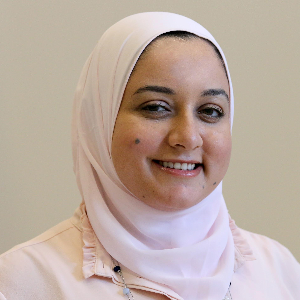Abstract:
The prevalence of childhood obesity in the US has been steadily increasing over the past 15 years and, since the COVID pandemic, childhood obesity and mental health challenges have risen disproportionately. Most primary care providers report needing additional support managing obesity within the pediatric population. Patients in primary care need effective, accessible and weight inclusive interventions that significantly include mental health especially those in low-income, and communities of color, which have been particularly affected by both of these crises.
In preliminary work at Cambridge Health Alliance, we learned from surveys that many primary care (PC) providers seek more behavioral health support in co-managing pediatric obesity. As an alternative to specialty clinic programs, our pilot was an intensive PC program led by a multidisciplinary team (PC, nutrition, behavioral health). The intervention promoted whole body health by integrating culturally focused nutrition guidance and behavioral health interventions. We implemented the program in one clinic with minority-identifying 9-13 year-olds and their caregivers. Evaluation included pre-post measures to assess parental stress, child wellbeing, and nutritional behavior, as well as qualitative interviews with families and providers.
Fifteen parent/child dyads were recruited, 10 enrolled, and 4 completed the pilot program. Families who completed the group reported fewer familial stressors. Despite overall acceptability by the families, there were no notable differences in pre-post child wellbeing and nutritional behavior measures. Qualitative interviews with providers illustrated interest in continuing to partner across disciplines to improve access. Qualitative interviews with parents indicated that children shared knowledge they gained, while interviews with children described positive engagement. However, the attrition rate indicates that more culturally and family focused content (e.g., including more cultural perspectives) and less instructive content (e.g., more interactive group activities) may be necessary.
Successful implementation of integrated obesity and behavioral health programs for children in primary care settings may require increased coordination with parents and pediatricians. For example, pediatricians may follow up with an electronic medical record message or phone call to check in with families, provide praise, and encourage engagement. Participation of pediatricians in sessions may also be warranted to
facilitate connection with participants. Future directions include using feedback from participants to inform future implementation, program expansion to other PC clinics, and studying the program’s long term impact on BMI, child wellbeing, parental stress, and nutritional behavior.
Audience take-away:
- Discuss the possible primary care treatment needs for children with obesity
- Explore ways to incorporate interdisciplinary and multicultural framework in treating pediatric obesity
- Treatment example for co-managing pediatric obesity in primary care




